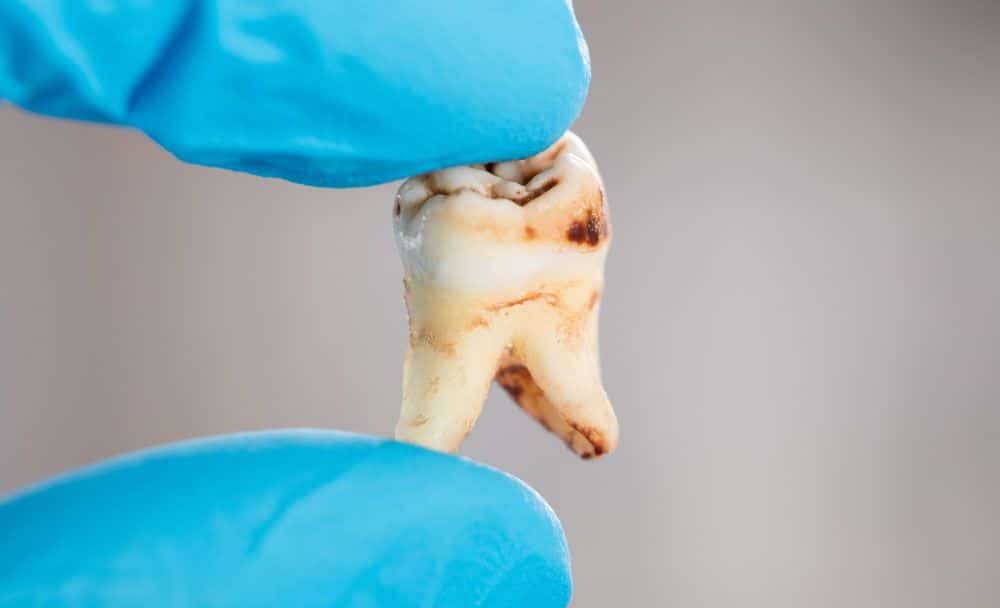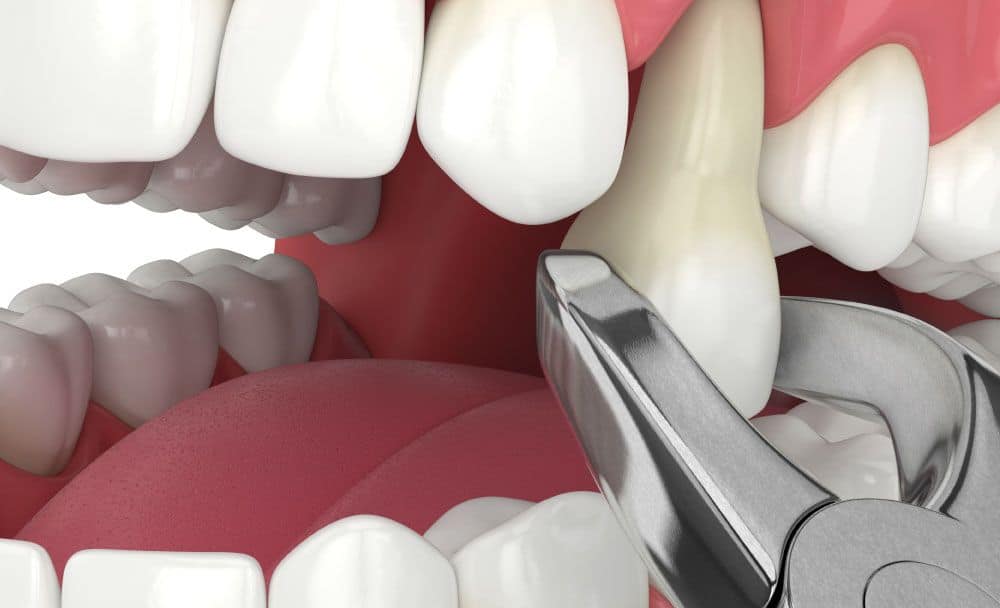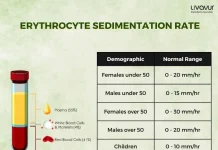
Tooth decay, also referred to as cavities or dental caries, is one of the most common oral health problems worldwide. It occurs after a complex interaction between acid-producing bacteria and fermentable carbohydrates, along with many host factors, including teeth, and saliva, over a protracted period of time. They can be found in the crowns and roots of teeth and can be seen as early as during infancy and toddler years, although individuals are susceptible to this disease throughout their lifetime. Tooth decay is the result of various factors such as poor oral hygiene, inappropriate methods of feeding infants, inadequate salivary flow, insufficient fluoride exposure, and poverty. It can lead to physical pain and sensitivity if left untreated. [1] Understanding what is tooth decay, what causes tooth decay, tooth decay symptoms, tooth decay treatment options, and preventive measures for tooth decay are essential for maintaining good oral health.
What are the causes of Tooth Decay?
Tooth decay is primarily caused by a combination of factors, including:
High Sugar Intake:
Consuming sugary and starchy foods and drinks fuels the plaque’s bacteria to produce acids that attack the teeth. [2]
Acidic Foods and Drinks:
Frequent consumption of acidic foods and beverages, such as citrus fruits, sodas, and sports drinks, can weaken the enamel and make it more susceptible to decay. [2]
Poor Oral Hygiene:
Inadequate brushing and flossing allow plaque, a sticky, glue-like layer of bacteria, to accumulate on the teeth. Plaque produces acids that erode the tooth enamel and lead to decay. [3]
What are the symptoms of Tooth Decay?

The symptoms of tooth decay may vary depending on the extent and severity of the decay, but common signs include:
- Toothache or sharp pain, especially when chewing or biting.
- Sensitivity to hot, cold, sweet, or acidic foods and drinks.
- Visible pits or dents on the tooth’s surface.
- Discoloration or darkening of the affected tooth with brown, black, or white staining.
- Bad breath/halitosis or a foul taste in one’s mouth.
- Chills, fever, and abscesses. [1]
How can Tooth Decay be treated?

Tooth decay treatment depends on the extent of the damage caused. Early-stage decay may be reversed with proper oral hygiene practices, but more advanced cases require professional intervention. Treatment options include:
Dental Fillings:
The decayed and damaged part of the tooth is removed, and the cavity is filled with materials like composite resin, amalgam, or porcelain to restore the tooth’s function and appearance.
Tooth remineralization:
This is a non-operative treatment and dental hygiene method, such as brushing twice daily with fluoride toothpaste, flossing, and regular topical fluoride application. This method, however, is effective only in cases of small carious lesions.
Dental Sealants:
For extensive decay or weakened teeth, a thin plastic-like coating may be placed to cover and protect the remaining tooth structure. [1] A partial or full crown may also be inserted. [3]
Tooth Extraction:
In cases of severe decay where the tooth cannot be saved, extraction may be required. [1]
Dentures, implants, or Root Canal Therapy:
If decay reaches the tooth’s pulp, causing infection and severe pain, a root canal procedure may be necessary to eliminate the rotten, infected tissue and preserve the tooth. [3]
How can Tooth Decay be prevented?
Preventing tooth decay is crucial for maintaining good oral health. The following preventive measures can help reduce the risk of tooth decay:
Brushing and Flossing:
Brush and floss your teeth at least twice daily using fluoride toothpaste to remove plaque and food particles.
Healthy Eating Habits:
Limit snacking and the consumption of chewy and sticky foods and drinks with sugar. To prevent tooth decay in kids avoid giving baby bottles to infants during sleep. Consume lots of green vegetables and healthy fruits.
Fluoride Use:
Use fluoride toothpaste and consider fluoride mouth rinses or gels as recommended by the dentist. The incorporated calcium helps strengthen the tooth enamel and prevent decay. [1]
Regular Dental Check-ups:
Visit the dentist regularly for routine check-ups, professional cleanings, and early detection of any dental issues. [2]
Avoidance of Tobacco and Alcohol:
Tobacco and excessive alcohol consumption can increase the risk of tooth decay and other oral health problems. [2]
FAQs
- How to stop tooth decay from spreading through Ayurveda?
Among the best home remedies for tooth decay is the well-known Rasayana herb, amla, which is essentially the fruit of a tree. It is considered a general rebuilder of oral health as amla works well as a mouth rinse as a decoction. Intaking just one to two grams of this fruit per day orally in the form of capsules can help with long-term benefits for the teeth and gums.
- What are the various stages of tooth decay?
There are five stages of tooth decay, White spots, Enamel decay, Dentin decay, Involvement of the pulp, and Abscess formation.
- What is tooth decay meaning?
To explain tooth decay meaning, it is damage to a tooth’s surface, or enamel, which normally happens when bacteria in the mouth make acids that attack the enamel. It then leads to cavities or holes in the teeth, and if not treated, it can cause pain, infection, and even tooth loss.
Conclusion
Extensive tooth decay can lead to major problems for an individual, affecting the overall quality of life. Poor oral hygiene, high sugar intake, acidic foods, dry mouth, and genetic factors contribute to the development of tooth decay. Understanding tooth decay meaning and recognizing the symptoms, seeking early treatment, and adopting preventive measures, including proper oral hygiene practices, regular dental visits, and a healthy diet, are crucial for preventing tooth decay and maintaining optimal oral health. By prioritizing oral care and following preventive measures, individuals can preserve their natural teeth and enjoy a lifetime of healthy smiles.
Disclaimer: This article is written from a health and wellness perspective and is not medical advice. Kindly seek the help of a certified medical practitioner before initiating any treatment.

















